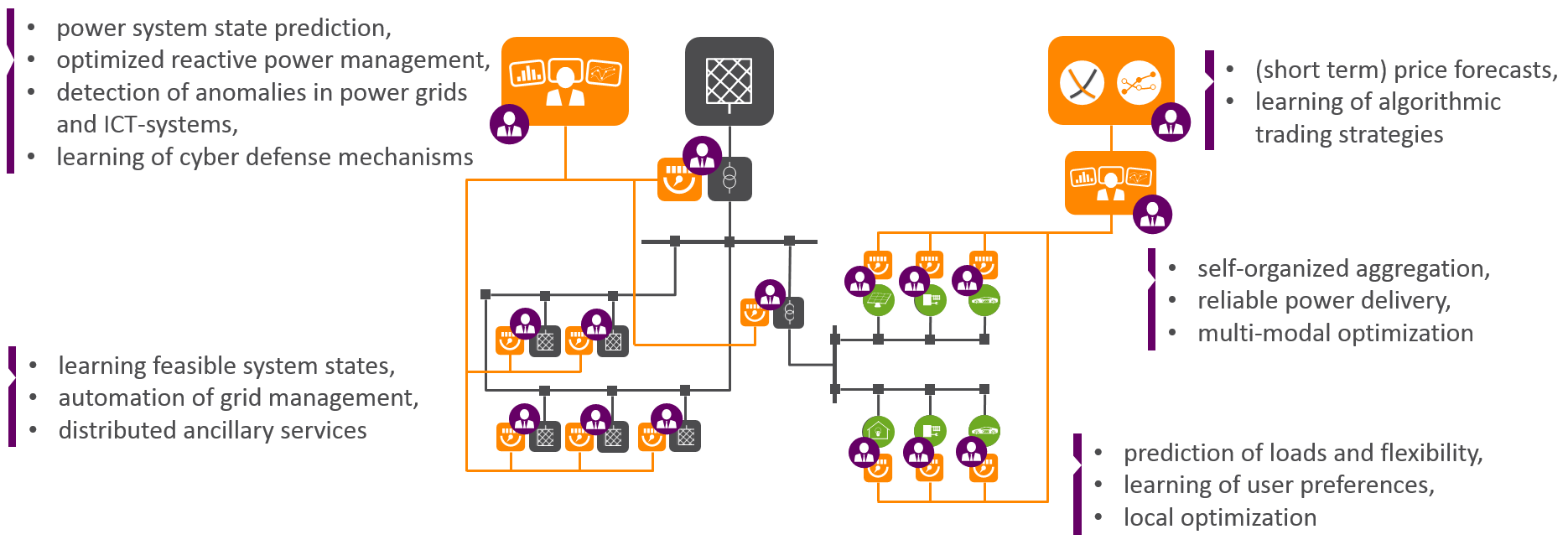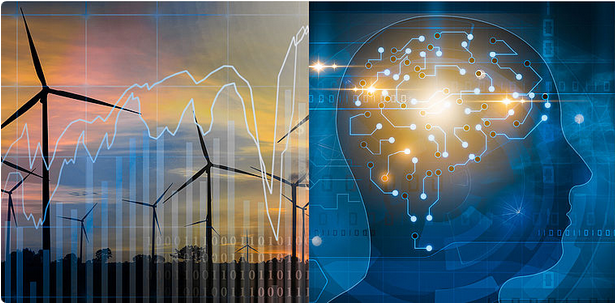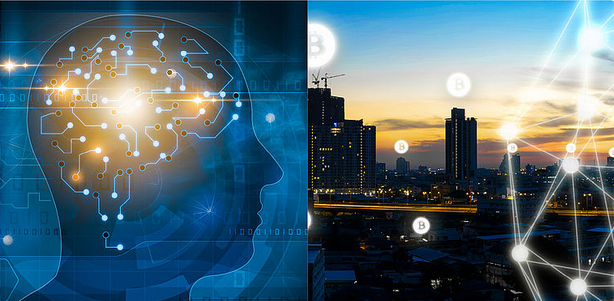
Power Systems Intelligence In research and development projects, the Power Systems Intelligence Group is working on solutions for decentralised, decarbonised and cyber-resilient energy supply, specialising in machine learning and artificial intelligence.
Vision: The AI-empowered Smart Grid

The integration of distributed and supply-dependent primary energies represents a major challenge for the transformation of energy systems. Modern artificial intelligence and machine learning technologies make a significant contribution to meeting this challenge in many areas: in the semi-automatic management of electricity grids, in the insight-driven marketing of decentralised energy systems, in the forecasting of load and generation time series, to name but a few. The close linking of energy systems and ICT infrastructure in smart grids also requires an adaptive and autonomous "immune system" in order to deal with attacks against the infrastructure and failures of subsystems.
The Power Systems Intelligence Group therefore researches and develops solutions at the interface between the power grid, the energy market, artificial intelligence and a cyber-resilient system understanding. Our vision: the AI-empowered Smart Grid.

Machine Learning
Every autonomous, pro-active system needs a model of its environment and a prediction of future system states. This can be the active power input of a wind or photovoltaic park, the demand in energetic neighbourhoods, the available flexibility for the provision of system services or the price development of the energy market. The digitalization of the energy supply opens up data volumes that represent a suitable basis for machine learning. In order to draw meaningful conclusions from these large amounts of data and to train systems for autonomous operation, approaches from deep learning have established themselves as a worthwhile research subject with impressive results. Structures such as deep recurrent networks are suitable for predicting time series or market behaviour. They also allow any systems to be simulated and can independently model complex issues using reinforcement learning. This technique, known as a surrogate model, makes it possible to simulate connections in the power grid, derive and correct sensor values or determine operating parameters for network management such as reactive power compensation factors almost in real time.
Our research in the field of machine learning therefore aims to contribute domain knowledge about the power grid and the energy market in the form of architectures for artificial neural networks to artificial intelligence and to make use of the methods of deep learning to enable prototypes for cyber-resilient network management and economic, intelligent action in energy markets. We work closely with the Computational Intelligence Department at the Carl von Ossietzky University of Oldenburg and play a key role in shaping the Deep Learning Competence Cluster.

Distributed and learning systems
Increasing decentralisation of energy supply is leading to increasing decentralisation of control and monitoring intelligence. We take the spatial and topological distribution of system components into account by developing distributed, (partially) autonomous agent systems. We work closely with the Department of Energy Informatics at Leibniz Universität Hannover and the OFFIS group Simulation and Agents in Multiple Domains. Our focus is on upgrading individual agents, who learn operating and trading strategies independently and bring the flexibility of the components they represent optimally into the overall system. The issues of network stability and the provision of regional system services also play a key role in this context. Learning agents turn decentralised energy systems into valuable, pro-active assets for distribution network operation. This contributes to a reliable and efficient energy supply and contributes to mastering the increasing complexity of the overall system. Furthermore, the detection of misconduct and other anomalies in power and communication networks is another part of our work.
Our research in the field of distributed and learning systems therefore aims at learning network and system characteristics and AI-supported analysis of possible attack scenarios. The unique research field of Adversarial Resilience Learning enables us to make the power grid a self-adapting, secure and cyber-resilient overall system, even in the case of strong digitalization. This goal connects us with the Automation, Communication and Control group, which researches the stable and reliable operation of dynamic systems.

Persons 
B
H
Projects 
A
Automatische Generierung von Modellen für Prädiktion, Testen und Monitoring cyber-physischer Systeme
Duration: 2022 - 2025D
Port Energy Management Dashboard: Digital control room for analysis and control of energy flows in ports
Duration: 2019 - 2022E
Dezentrale Energieversorgung im Praxistest (sorry - only available in German)
Duration: 2017 - 2021
European Research Infrastructure supporting Smart Grid Systems Technology Development, Validation and Roll Out
Duration: 2015 - 2020F
Flexibilitätsmanagement und Regelenergiebereitstellung von Schwerlastfahrzeugen im Hafen (sorry - only available in German)
Duration: 2019 - 2024I
Interoperability test platform for components of the energy transition
Duration: 2024 - 2027L
P
Ressourceneffiziente und optimierte Plattform für EE-Integration und Smart Market-Aufgaben unter Nutzung eines zustandsbasierten Last-, Erzeugungs- und Informationsmanagements (sorry - only available in german)
Duration: 2014 - 2017
Polymorphic agents as cross-sectional software technology for the analysis of the operational safety of cyber-physical systems
Duration: 2019 - 2022 Publications 
2025
Aleksandr Berezin, Stephan Balduin, Eric MSP Veith, Thomas Oberließen, Sebastian Peter; ENERGY 2025, The Fifteenth International Conference on Smart Grids, Green Communications and IT Energy-aware Technologies; March / 2025
2024
Wolgast, Thomas and Nieße, Astrid; IEEE Access; 2024
Maximilian Schmidt, Swantje Plambeck, Markus Knitt, Hendrik Rose, Goerschwin Fey, Jan Christian Wieck and Stephan Balduin; 4th Italian Workshop on Artificial Intelligence and Applications for Business and Industries - AIABI; 2024
Veith, Eric MSP and Logemann, Torben and Berezin, Aleksandr and Wellßow, Arlena and Balduin, Stephan; 2024 12th Workshop on Modeling and Simulation of Cyber-Physical Energy Systems (MSCPES); 2024
Wolgast, Thomas and Nieße, Astrid; Energy and AI; August / 2024
Wellßow, Arlena and Smith, Paul and Widl, Edmund and Veith, Eric and Kohlisch-Posega, Julian and Soro, Francesca and Puhan, Malte and Theil, Andreas and Uslar, Mathias and Zoll, Roland; February / 2024
Veith, Eric MSP and Balduin, Stephan and Wellßow, Arlena and Logemann, Torben; 2024
Veith, EM and Logemann, T and Wellßow, A and Balduin, S; Dubrovnik, Croatia. IEEE; 2024
Engelmann, Lena and Wellßow, Arlena and Veith, Eric; the 2024 European Simulation and Modelling conference (ESM 2024); 2024

